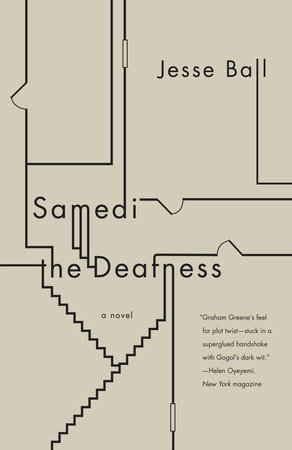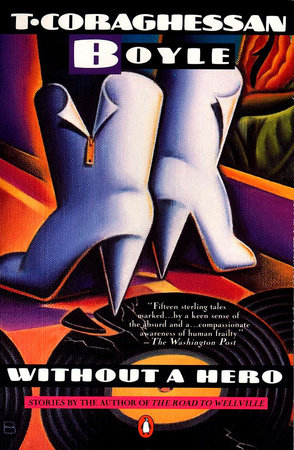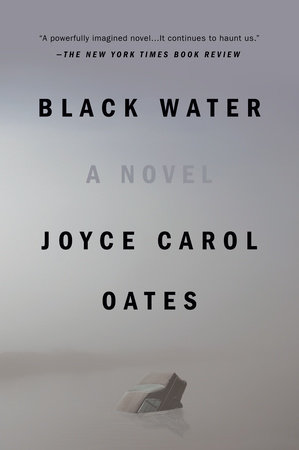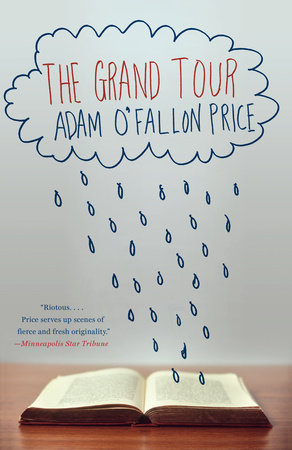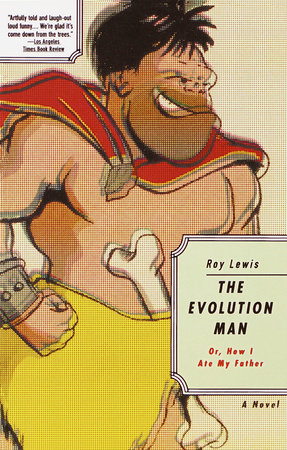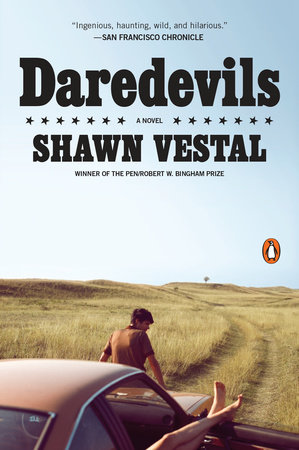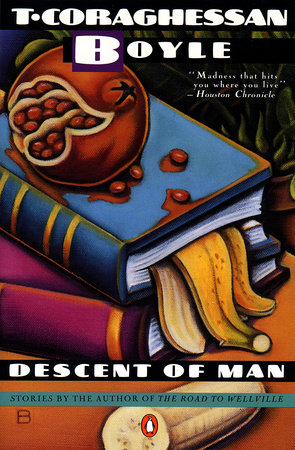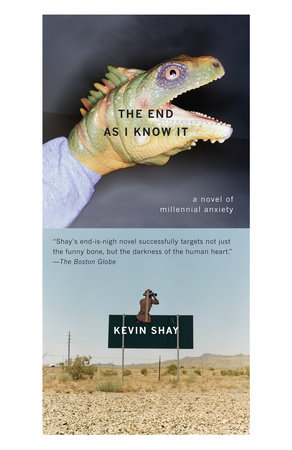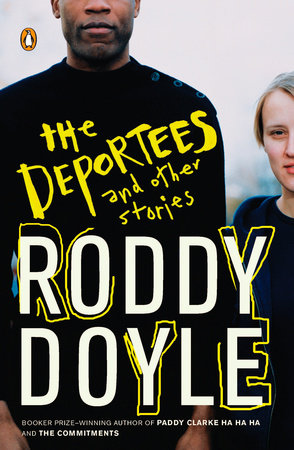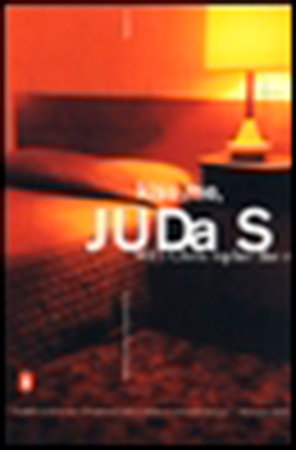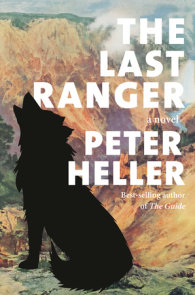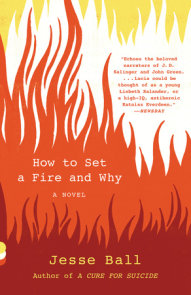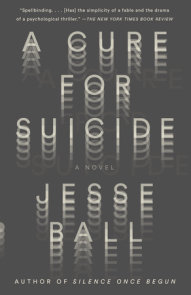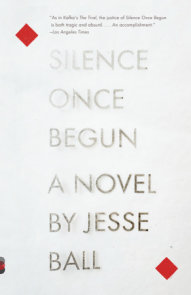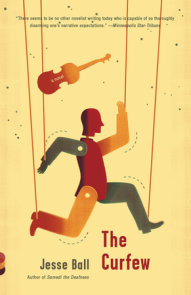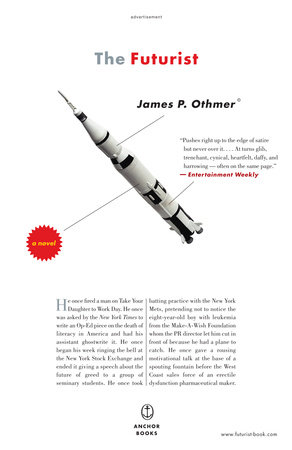Author Q&A
Q: People here have referred to Samedi the Deafness as a literary spy novel, a murder mystery, and even a technothriller. How would you categorize Samedi if you had to?
A: The book is an examination of the act and skill of lying. Almost every character lies at some point. Their lies can be methodical, or they can be spontaneous. I think lies can be full of hope, too. I try to keep the thread of reality clear enough that the lies the characters weave can be seen as lies. In this book, certain things are true and others are not. James Sim is desperate to know which are which.
Q: Much of the action in Samedi takes place in an asylum for the curing of chronic liars. James can’t tell who is a liar and who is a truth-teller. His romantic relationship is threatened by this fact, and later his very life is too. What drew you to this concept?
A: I think false information is crucial to any true depiction. For instance, in dialogue, it’s important to me to not have the characters precisely answer each other’s questions. In life, people talk at right angles. One asks a question and the other replies in part, then uses that part to move the conversation to something else. Everyone has an agenda, has something they’re trying to say, or not say.
When I was in high school I had a notebook that I filled up with rules about lying. It must have been a hundred pages long — one hundred pages of rules about lying! The problem with lying is that it requires a profoundly good memory and a real genius for organization. Of course, that is if you don’t want to get caught. Many people are careless in their lying, and don’t mind getting caught. To a liar, the most dangerous individual is the person who catches lies but doesn’t say anything about it. Then the liar isn’t sure which lies are compromised. I lost that notebook at some point. It’s unfortunate. It would have been helpful to have around when I was writing Samedi.
Q: What do you love best about fiction?
A: When I was growing up, there was a tragedy in my family and we spent a great deal of time at the hospital. One thing that helped me a great deal was reading. I find that story, that pure story, severed from truth, from culture, from morality, is one of the great gifts we’ve been given. Story and memory are closely linked. I remember at some point, maybe when I was 19 or 20, realizing that I had enough memories put together that I could just sit and close my eyes occupy myself by remember things. Someone told me the other day about exercises they do in some old age homes where everyone tries to remember what he or she had for breakfast the day before, and then the day before that, and then the day before that. It sounds easy, but I don’t think it’s so easy. Try it, you’ll see! I’m always amazed when someone is questioned by the police about a murder, asked where they were on a particular day three months before, and the person knows. Where were you on the fifteenth of April, 2006 between the hours of 3 and 7? That kind of remembering is difficult, but just letting memories go where they want, here and there— that’s pleasant. Our faculties come upon story in this way — as we read a good book our thoughts and memories flip and fold like a jacob«s ladder.
Q: Samedi is, at the end of the day, a sort of terrorist group. Were you consciously thinking about current global politics in writing about Samedi?
A: The plot that Samedi revolves around is a conspiracy to cause a weather change in people’s view of their responsibility to one another. That is not the aim of most terrorist organizations in the world, I should think. So, to answer the question, Samedi is an investigation of lies and responsibility, and would, I hope, be pertinent and useful, even in a world without terrorists or the governments they oppose.
Q: I understand you wrote this novel in a castle in Scotland. Can you tell us more about the writing process for this novel?
A: In 2005, I was living in Montpellier, France. I had a place in an ancient house — really ancient, I think the staircase was medieval. I was lying in bed early in the morning; it was September. An image appeared in my head, a man in a coat standing in an autumn street. He turned and as he turned, the street and the world beyond revealed itself to me. I saw the entire plot of the book as a cloud of images. It remained but to write it down. In Scotland, a few weeks after that, I was at Hawthornden Castle doing a writer’s retreat. I thought for a week, and then I wrote Samedi in three weeks straight through from beginning to end. Every night I would write the plot as I had seen it, and when I was through for the night I would print the pages and pin them up in the room I’d been given. One wall became full, then another, another, another, and then the ceiling. When I was done with the novel the whole room was completely covered with the book’s pages. It helped to write, definitely, because I felt I was inside the book. At Hawthornden there’s a rule against talking to the other fellows most of the time. There was a cemetery near Hawthornden Castle where I would sometimes go. I got all the names for the book out of that cemetery, mostly men who died in mining accidents, or in the Great War.
Q: Who are some of your main literary influences?
A: As far as I can see, the best writers in the last two hundred years have been Whitman, Rilke, Proust, Kafka. Their best works: Leaves of Grass — 1855; Duino Elegies; The Captive & The Fugitive; The Castle. The best thing I«ve read in a while is The Notebook by Agota Kristof. The best living writer would be Cormac McCarthy, based completely on the mastery he displays in Blood Meridian.
Q: When did you decide to become a writer?
A: I suppose I was about 14. I often forget just how much writing I did then. Mostly, I didn’t show it to anyone. I’m a great believer in secrets.
Q: What are you working on now?
A: The next book I write is going to be called The Children Six. I haven’t started it yet. Children make great characters because the spectrum of action that they can undertake is virtually limitless. I had a dream in which a group of children were following me around and speaking in unison. That’s where the idea came from.
